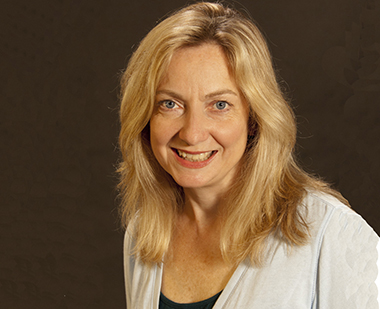5 Questions with Faculty: Heather Larkin
 |
|
Heather Larkin |
ALBANY, N.Y. (June 25, 2019) – Children who experience multiple traumas – the loss of a parent, abuse or neglect, or substance abuse in the home – are at higher risk for having problems in school, holding a job, or even becoming homeless later in life.
Heather Larkin, an associate professor in the School of Social Welfare and co-director of the National Center for Excellence in Homeless Services, is passionate about building community resilience to tackle the core effects of these traumas.
She received her undergraduate degree in psychology and women’s studies in 1992 from the University of Rhode Island, and a master’s in social work in 1994 from Boston University. Larkin earned her doctorate in social work in 2006 from The Catholic University of America, researching systems integration and substance abuse service delivery. She joined UAlbany in 2006.
What made you choose Adverse Childhood Experiences (ACEs) as a research topic?
I had been working on systems integration and was interested in how best to serve high-risk population groups. The social work code of ethics calls us to focus on the most vulnerable and disadvantaged populations. Back then, around 2005, there was a call in the literature for more collaboration, but it was not happening very much. I started looking at an award-winning homeless services agency in California and that is where I started learning about ACEs. When people have higher scores of more adversity in life, that’s when you see multiple co-occurring problems that call for a more comprehensive approach.
How do you account for the growing acceptance nationally over the past 10 years in using ACEs for evaluating the issues faced by homeless people, immigrants and other populations?
When I first started presenting on ACEs, maybe one person in the audience would have heard of it. Now more than half have. There has been a big change. I started a structure where leaders of programs that work with people across the lifespan joined together as they recognized that ACE backgrounds were characteristic of those they served – and that ACEs were often the root of present day consequences.
In early 2009, I began to lead ACE Think Tank and Action Team meetings, which led to work with local service agency directors to strengthen ACE response through the Healthy Environments And Relationships That Support (HEARTS) Initiative. (The HEARTS Initiative was funded locally by the Charles R. Wood Foundation in 2011 and became part of a national Robert Wood Johnson Foundation funded initiative in 2016.)
Nationally other communities started developing similar partnerships. Journalist Jane Ellen Stevens wrote articles that made their way into the mainstream press. A high school in the state of Washington used ACEs in working with students and experienced a 90 percent drop in suspension rates and a 75 percent drop in fights. Robert Redford’s son Jamie made a documentary about this school called Paper Tigers and another film Resilience, which covers the ACE Study but also how science is used to foster protective factors and resilience.
If you were not teaching at a university, what would you be doing?
I would be spending more time with my 2-and-a-half-year-old daughter and working in a homeless services agency.
What is the last book you read for pleasure?
Unfinished Business: Women Men Work Family, by Anne-Marie Slaughter, a Princeton faculty member who experienced parenting challenges when she used her two-year leave (which many schools offer through HR) to work at the State Department. The author highlights the need for changes in social norms and outdated workplaces, pointing out opportunities that come with technology and the expectations of younger generations entering the workforce.
What was your first job?
My first official paid job was working as a “page” in the library — putting away books and helping library patrons use microfiche. I come from a line of librarians (both my mother and grandmother were librarians), and I worked at a library where my mother was the librarian.
![]() For more news, subscribe to UAlbany's RSS headline feeds
For more news, subscribe to UAlbany's RSS headline feeds
A comprehensive public research university, the University at Albany-SUNY offers more than 120 undergraduate majors and minors and 125 master's, doctoral and graduate certificate programs. UAlbany is a leader among all New York State colleges and universities in such diverse fields as atmospheric and environmental sciences, business, education, public health,health sciences, criminal justice, emergency preparedness, engineering and applied sciences, informatics, public administration, social welfare and sociology, taught by an extensive roster of faculty experts. It also offers expanded academic and research opportunities for students through an affiliation with Albany Law School. With a curriculum enhanced by 600 study-abroad opportunities, UAlbany launches great careers.


